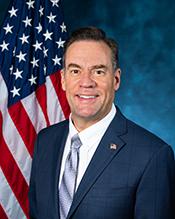0
1
1
Reducing Barriers for Broadband on Federal Lands Act of 2025
4/3/2025, 11:56 AM
Summary of Bill HR 2298
Bill 119 hr 2298, also known as the "Broadband Deployment Streamlining Act," aims to streamline the process for broadband projects by exempting them from certain environmental and historical preservation reviews. The bill seeks to expedite the deployment of broadband infrastructure by removing regulatory barriers that can delay or hinder these projects.
Specifically, the bill would exempt certain broadband projects from requirements to prepare environmental or historical preservation reviews, which can often be time-consuming and costly. By doing so, the bill aims to facilitate the expansion of broadband access to underserved and rural areas, where such reviews can pose significant challenges to deployment.
Proponents of the bill argue that by streamlining the regulatory process for broadband projects, it will help bridge the digital divide and ensure that more Americans have access to high-speed internet. They believe that by removing unnecessary regulatory burdens, broadband providers will be able to more quickly and efficiently deploy infrastructure, ultimately benefiting consumers and communities. Critics of the bill, however, raise concerns about potential environmental and historical impacts of exempting broadband projects from these reviews. They argue that these reviews are important for protecting natural resources and preserving historical sites, and that exempting broadband projects could lead to unintended consequences. Overall, Bill 119 hr 2298 seeks to balance the need for expanding broadband access with the importance of environmental and historical preservation. It will be important for lawmakers to carefully consider the potential impacts of this legislation and weigh the benefits of streamlining broadband deployment against the potential risks to the environment and historical sites.
Specifically, the bill would exempt certain broadband projects from requirements to prepare environmental or historical preservation reviews, which can often be time-consuming and costly. By doing so, the bill aims to facilitate the expansion of broadband access to underserved and rural areas, where such reviews can pose significant challenges to deployment.
Proponents of the bill argue that by streamlining the regulatory process for broadband projects, it will help bridge the digital divide and ensure that more Americans have access to high-speed internet. They believe that by removing unnecessary regulatory burdens, broadband providers will be able to more quickly and efficiently deploy infrastructure, ultimately benefiting consumers and communities. Critics of the bill, however, raise concerns about potential environmental and historical impacts of exempting broadband projects from these reviews. They argue that these reviews are important for protecting natural resources and preserving historical sites, and that exempting broadband projects could lead to unintended consequences. Overall, Bill 119 hr 2298 seeks to balance the need for expanding broadband access with the importance of environmental and historical preservation. It will be important for lawmakers to carefully consider the potential impacts of this legislation and weigh the benefits of streamlining broadband deployment against the potential risks to the environment and historical sites.
Read the Full Bill
Current Status of Bill HR 2298
Bill HR 2298 is currently in the status of Bill Introduced since March 24, 2025. Bill HR 2298 was introduced during Congress 119 and was introduced to the House on March 24, 2025. Bill HR 2298's most recent activity was Referred to the Committee on Energy and Commerce, and in addition to the Committee on Natural Resources, for a period to be subsequently determined by the Speaker, in each case for consideration of such provisions as fall within the jurisdiction of the committee concerned. as of March 24, 2025
Bipartisan Support of Bill HR 2298
Total Number of Sponsors
3Democrat Sponsors
0Republican Sponsors
3Unaffiliated Sponsors
0Total Number of Cosponsors
0Democrat Cosponsors
0Republican Cosponsors
0Unaffiliated Cosponsors
0Policy Area and Potential Impact of Bill HR 2298
Primary Policy Focus
Science, Technology, CommunicationsAlternate Title(s) of Bill HR 2298
To ensure that certain broadband projects are not subject to requirements to prepare certain environmental or historical preservation reviews, and for other purposes.
To ensure that certain broadband projects are not subject to requirements to prepare certain environmental or historical preservation reviews, and for other purposes.
Comments
Sponsors and Cosponsors of HR 2298
Latest Bills
ESTUARIES Act
Bill HR 3962December 13, 2025
Federal Maritime Commission Reauthorization Act of 2025
Bill HR 4183December 13, 2025
National Defense Authorization Act for Fiscal Year 2026
Bill S 1071December 13, 2025
Enduring Justice for Victims of Trafficking Act
Bill S 2584December 13, 2025
Technical Corrections to the Northwestern New Mexico Rural Water Projects Act, Taos Pueblo Indian Water Rights Settlement Act, and Aamodt Litigation Settlement Act
Bill S 640December 13, 2025
Incentivizing New Ventures and Economic Strength Through Capital Formation Act of 2025
Bill HR 3383December 13, 2025
BOWOW Act of 2025
Bill HR 4638December 13, 2025
Northern Mariana Islands Small Business Access Act
Bill HR 3496December 13, 2025
Wildfire Risk Evaluation Act
Bill HR 3924December 13, 2025
Energy Choice Act
Bill HR 3699December 13, 2025
